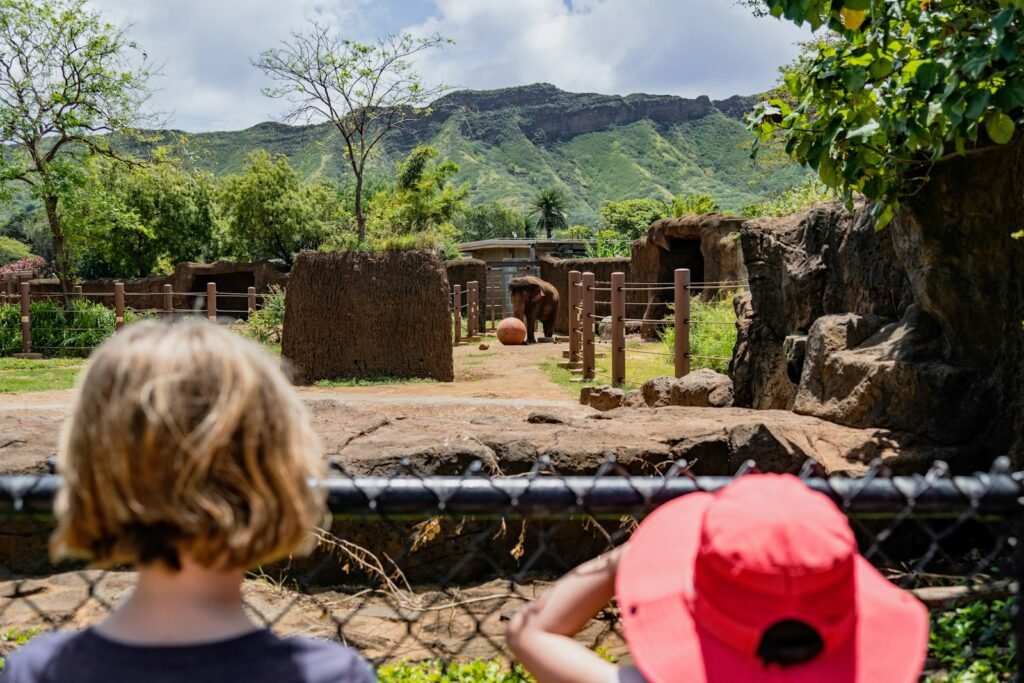Zoos have long been a topic of debate, their existence teetering between admiration and criticism. On one hand, they offer an opportunity for people to witness the wonders of the animal kingdom up close, often fostering a deep appreciation for wildlife. On the other hand, concerns about the ethics of keeping animals in captivity linger. As we delve into the science behind zoos and their role in conservation, it is crucial to examine the benefits and drawbacks they present, not just to humans but to the animals themselves.
The Historical Role of Zoos

Historically, zoos were primarily seen as places of entertainment. Ancient civilizations like the Egyptians and Romans housed exotic animals to showcase wealth and power. However, as the centuries progressed, so did the purpose of zoos. By the 19th century, they began to shift towards education and scientific research. This transition was partly due to a growing awareness of the plight of endangered species. Today, many zoos aim to serve as conservation centers, playing an active role in species preservation. Yet, this evolution raises questions about their effectiveness and ethical standing in modern society.
Conservation Efforts in Zoos
Modern zoos often highlight conservation as one of their primary objectives. They participate in breeding programs for endangered species, providing a lifeline for animals on the brink of extinction. For example, the California condor, once nearly extinct, has been brought back from the edge through such initiatives. Zoos also contribute to wildlife research, offering insights into animal behavior, genetics, and health. However, critics argue that these efforts, though commendable, sometimes fall short of addressing the broader issues facing wildlife, such as habitat destruction and climate change.
The Educational Value of Zoos
Zoos serve as educational platforms, offering visitors a glimpse into the diverse world of animals. They provide an opportunity for people to learn about species they might never encounter in the wild. Many zoos offer programs that teach about conservation and the importance of protecting natural habitats. By engaging the public, zoos hope to inspire a new generation of conservationists. However, the effectiveness of these educational efforts is often debated. While some visitors leave with a newfound respect for wildlife, others may not fully grasp the complexities of conservation.
Animal Welfare Concerns

A significant concern regarding zoos is the welfare of the animals. Critics argue that even the best zoos cannot replicate the freedom and complexity of an animal’s natural habitat. This can lead to physical and psychological issues, such as zoochosis, where animals exhibit repetitive behavior due to stress or boredom. Proponents counter that modern zoos prioritize animal welfare, with many investing in expansive enclosures designed to mimic natural environments. Despite these efforts, the debate over whether zoos can truly provide a suitable living environment for all species continues.
The Ethics of Captivity
The ethical implications of keeping animals in captivity are complex. On one hand, zoos offer refuge to animals that might otherwise face extinction in the wild. On the other, the very act of confining animals raises moral questions. Is it justifiable to restrict an animal’s freedom for the sake of education or conservation? This ethical dilemma is at the heart of the zoo debate. While many zoos strive to balance these concerns, the question of whether they can ever truly be ethical remains open-ended.
Zoos and Biodiversity
Zoos play a role in preserving biodiversity by participating in global breeding programs. These efforts aim to maintain genetic diversity and prevent inbreeding in endangered populations. The success of these programs is evident in species like the golden lion tamarin, which has seen a resurgence due to coordinated breeding efforts. However, maintaining genetic diversity in captivity is challenging, often requiring collaboration between zoos worldwide. This interconnected approach highlights the potential of zoos to contribute positively to global biodiversity.
The Impact on Local Ecosystems

While zoos primarily focus on ex-situ conservation, their impact on local ecosystems should not be overlooked. Many zoos engage in conservation projects that benefit local wildlife and habitats. By supporting reforestation or anti-poaching initiatives, zoos extend their conservation efforts beyond their walls. However, the scale of these projects often pales in comparison to the challenges facing global ecosystems. Balancing in-situ and ex-situ conservation remains a critical challenge for zoos and conservationists alike.
Zoos as Research Hubs
Zoos are valuable research hubs, offering unique opportunities to study animals up close. Research conducted in zoos has contributed to our understanding of animal behavior, physiology, and genetics. This knowledge can be applied to conservation efforts in the wild, aiding in the development of strategies to protect endangered species. However, the applicability of findings from zoo-based research to wild populations is sometimes questioned, as captive conditions differ significantly from those in the wild.
Public Perception of Zoos
Public perception of zoos varies widely, influenced by personal experiences, media portrayals, and cultural attitudes. Some view zoos as essential for conservation and education, while others see them as outdated institutions. This divide is often reflected in the policies and practices of zoos around the world. As the public becomes more informed about animal welfare and conservation, zoos must adapt to meet changing expectations and maintain their relevance in society.
The Future of Zoos

The future of zoos is uncertain, as they navigate the challenges of modern conservation and public scrutiny. To remain relevant, zoos must continue to evolve, embracing new technologies and approaches to conservation. This may involve shifting focus from traditional exhibits to more immersive, interactive experiences that engage visitors on a deeper level. By prioritizing animal welfare and ethical considerations, zoos can continue to play a vital role in conservation while addressing the concerns of critics and supporters alike.



